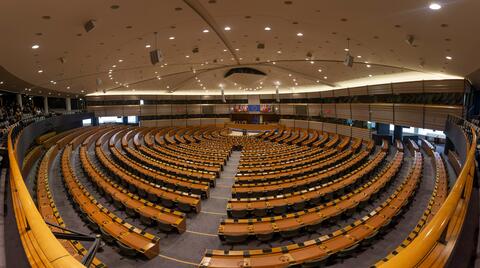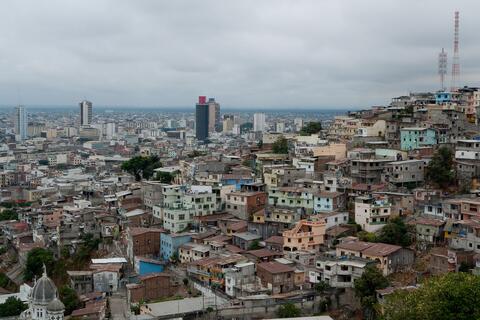Conference on Non-Democratic Regimes
June 11th and 12th, Yale University
Sponsored by the Georg Walter Leitner Program in International and Comparative Political Economy. Conference Organizer: Alexandre Debs.
Program | Participants | Abstracts | Contacts & Venue | Home
Abstracts
Click on titles download papers.
Panel I - Development, Growth and the Stability of Dictatorships
Carles Boix (Princeton University)
“Transitions to Democracy, Development, and the International System”
Abstract: Current studies, mainly focused on the postwar period, are split on the impact of development on transitions away from authoritarianism. Examining panel data that runs from early nineteenth century (a time where hardly any democracy was in place) to the end of the twentieth century, I show income matters positively for democratization – both after controlling for country and time effects and instrumenting for income. Since the effect of time partly varies over time, with some historical periods that are more favorable to democracy than others, I investigate the domestic variables (a decreasing marginal effect of growth in already developed economies) and international factors (the strategies of great powers toward small countries) generating that result. I finally probe the underlying processes through which income shapes political institutions, showing that development produces key changes in the distribution and nature of wealth that, in turn, make democracy a stable political outcome.
Joseph Wright (Penn State University)
“Economic Conditions and Support for Authoritarian Leaders:
Evidence from Survey Data”
Abstract: Most research which addresses how economic conditions affect support for incumbent political leaders explores this relationship in democracies. However, we know little about how economic conditions affect support for authoritarian governments. This paper explores whether trade openness conditions the effect of economic outcomes on support for incumbent authoritarian leaders. Using data from the World Values Survey (1995–1997, 2000–2003) in 19 authoritarian countries, this paper finds that, consistent with results from democracies, country-level trade volume conditions the effect of individual-level income and recent (in the past year) individual economic outcomes on support for incumbents. In closed authoritarian countries, income and recent economic success are positively correlated with support for the incumbent, but more economic openness attenuates these effects. Second, this paper addresses why trade openness conditions the relationship between economic conditions and incumbent approval by examining whether compensation and the relative wealth of neighboring countries (a proxy for incentives to migrate) condition the relationship between economic outcomes and approval. If compensation explains why openness mitigates the effect of negative economic conditions, this would suggest a causal mechanism similar to that found in democracies. However, if relative neighboring country wealth explains why openness works this way, this would suggest an alternative mechanism: openness may entail better opportunities to migrate, attenuating the negative effect of poor economic conditions on incumbent approval. Finally, many of these results are concentrated among more pro-democracy respondents, suggesting implications for how economic conditions affect democratization.
Panel II - Protest and Repression
Beatriz Magaloni (Stanford University)
“Taking to the Streets: Theory and Evidence on Protest under Authoritarianism”
(with Ruth Kricheli and Yair Livne)
Abstract: In the recent decades, citizens all over the world took to the streets to oppose predatory autocracies. We examine how mass politics and civil protests affect authoritarian stability. We ask two questions: when are protests likely to spread, and under what conditions are autocracies more likely to collapse as a result of civil protest. To answer these questions, we develop a game-theoretic model wherein citizens decide whether to protest against the regime in two consecutive periods. Civil uprisings face two challenges: first, citizens face incomplete information about other citizens’ preferences, and hence, about the number of citizens likely to join the protest; and second, to be successful, protesters need to be numerous enough. Our model suggests that a key reason why citizens turn out and protest is to signal to their fellow citizens that they are willing to take to the streets, thereby facilitating political change in the future. The model generates two important comparative statics: more repressive regimes are more likely to dissuade mass protests from ever taking place, yet, surprisingly, once citizens are in the streets, protest becomes more dangerous for regime survival the more repressive the regime is. To test our theory, we introduce an original variable to measure authoritarian stability and apply survival analysis to data from contemporary regimes from 1950-2006. Our empirical findings support our theory.
Panel III – Liberalization
Peter Lorentzen (University of California at Berkeley)
“Flying Blind: Authoritarian Political Cycles”
Abstract: Authoritarian leaders often find themselves making policy while “blinded” to important information due to restrictions on open debate put in place to protect the regime. While the European Communist regimes generally ruled out debate entirely, the Chinese Communist Party (CCP) has instead alternated cyclically between periods of open and closed debate. This paper provides a formal model demonstrating that the periodic willingness to allow temporary phases of openness results from the greater difficulties faced by counterrevolutionaries who might have organized against the CCP and from the CCP’s difficulties gathering accurate information about the effectiveness of its policies across a poor and diverse countryside.
Alexandre Debs (Yale University)
“Living by the Sword and Dying by the Sword: Leadership Transitions in and out of Dictatorships”
Abstract: What explains the post-tenure fate of dictators? How does it affect their propensity to democratize? We tackle these questions in a model, with one leader and N-1 factions. First, the leader decides whether to democratize. Second, players decide whether to oust the leader and eliminate each other. Third, surviving players divide the spoils of office. We conclude that a leader may be eliminated because he cannot commit to refrain from using violence in the future. The greater is a leader’s capacity for violence, the more likely he is to be eliminated upon his ouster. Since dictators can remain in office unless they are threatened with violence, leaders with greater capacity for violence are more likely to be ousted. Expecting a shorter tenure, leading to harsher treatment, leaders with greater capacity for violence are more likely to democratize. We provide support for our theory in the post-World War II period.
Panel IV - The International Environment
Monika Nalepa (University of Notre Dame)
“The International Criminal Court – Spoiler or Promoter of Democratization? International Transitional Justice and Peaceful Democratic Transitions”
(with Emilia Justyna Powell)
Abstract: Does the International Criminal Court (ICC) hinder or promote transitions to democracy? This paper presents a decision model, which reconstructs ways in which domestic sources of accountability (endogenous transitional justice) interact with international sources of accountability such as the ICC (exogenous transitional justice) to affect dictators’ decisions to step down from office. We test some of our model’s empirical implications with data on all democratic spells from 1998 to 2007. We find that both the size of atrocities committed by the outgoing dictator and the extent to which the former opposition resorted to violence in dealing with authoritarian rule modify the effect which the ICC has on inducing dictators to step down. In particular, strong ICC may enhance autocratic dictators to step down from office, but only in states where human rights violations are not severe; however, autocracies that need regime change the most- autocracies where both the opposition and the ruling elite are entrenched in severe human rights violations are more likely to survive in the world with a strong, widely supported ICC.
Jessica Weeks (Cornell University)
“Authoritarian Regimes, Domestic Politics and War”
Abstract: How do domestic politics affect democratic and authoritarian leaders’ decisions about war and peace? Most existing scholarship argues that because democratic leaders are more accountable domestically, they are more selective about starting interstate wars. This, the argument goes, explains in large part why democracies appear to win wars at higher rates than non-democracies. In this paper, I critique the “democratic advantage” consensus both theoretically and empirically, arguing that international relations scholars have tended to ignore important differences in the domestic politics, and therefore conflict behavior, of authoritarian regimes. I make two central theoretical arguments linking domestic regime type to the initiation of war. First, when powerful domestic elites can constrain leaders, even autocratic leaders must make foreign policy decisions in the shadow of domestic punishment. Like democracies, they therefore only initiate wars when they believe they can win. However, regimes led by military leaders are not as effective as civilian leaders at calculating the likelihood of victory; this is due to biases inherent in the socialization and training of military officers. Military leaders therefore tend to overestimate the chances of victory. On the empirical side, I test these hypotheses using new data on domestic political institutions in authoritarian regimes for war participants between 1918 and 1999. I show that civilian regimes in which leaders are constrained by domestic audiences are just as likely to prevail militarily as democracies. Both military-led and personalistic regimes, in contrast, lose wars at much higher rates. Moreover, I provide preliminary evidence for the posited causal mechanisms (constraints and overoptimism) using both cross-national and case-study evidence.
Panel V - Non-Democratic Institutions
Philip Keefer (World Bank)
“Private Investment and the Institutionalization of Collective Action in Autocracies: Ruling Parties, Militaries, and Bureaucracies”
(with Scott Gehlbach)
Abstract: We argue that the willingness of rulers to allow collective action by key groups explains the success of some autocracies in attracting private investment, notwithstanding the absence of democratic institutions to constrain opportunistic behavior. Our argument goes beyond existing analyses that link autocratic success to the size of the selectorate or the existence of legislatures by focusing on the key constraint limiting selectorate size and legislative efficacy: organizational arrangements that allow group members to act collectively against the ruler. We introduce a new quantitative measure of the ability of ruling party members to act collectively and show that this variable is robustly associated with higher investment and lower risks of opportunistic behavior in non-democracies. Qualitative evidence also identifies large differences among non-democracies in the constraints imposed on collective action within ruling parties, militaries, and bureaucracies.
Panel VI – Democratic Consolidation and Breakdown
Milan Svolik (University of Illinois at Urbana-Champaign)
“Learning to Love Democracy: A Theory of Democratic Consolidation and Breakdown”
Abstract: A central promise of democracy is to deliver good governance by holding politicians accountable for their performance in office. I show why political accountability may fail in young democracies and thus lead to their breakdown. I model the process by which elections allow candidates to build reputations for performing well and weed out candidates that cannot be deterred from performing poorly by the threat of a removal from office. When successful, this process gradually strengthens voters’ trust that elections can deliver political accountability and leads to the consolidation of democracy, a state in which democratic breakdown no longer occurs. This theory explains why economic recessions lead to democratic breakdowns, why young democracies break down more often than established ones, why rich democracies consolidate sooner than poor ones, why public trust in democracy declines during economic recessions, and why in established democracies voters demand more and candidates perform better.
Andrea Vindigni (Princeton University)
“The Coevolution and Persistence of Political Institutions, Power and Political Ideologies”
(with Davide Ticchi, Thierry Verdier)
Abstract: We provide a theory of endogenous political institutions and political ideology. Political institutions can be either democracy or military dictatorship; political ideology or culture represents instead the consumption value that agents potentially have from living in a democracy. We investigate the coevolution of political institutions and cultures within a dynamic general equilibrium model. Institutions potentially change endogenously in our model, depending on the occurrence of coups or revolutions along the equilibrium path; political culture evolves reflecting past endogenous investments by the previous governments in democratic capital, or the depreciation of the latter due to presence of a military regime in office. We show that investment in democratic culture works as a commitment device, allowing the government of a relatively unconsolidated democracy to prevent coups by raising the consumption value of democracy for the society, and therefore making the threat to oppose potential attempts of military interventions in politics more credible. Moreover, we show that past and future investments in democratic culture complement each other (at least over some range) in the sense that a higher stock of democratic capital inherited from the past stimulates future investments in democratic culture. As a result, multiple steady states depending on initial conditions are shown to exist. These include a stable democracy, obtaining when the initial stock of democratic capital is sufficiently high, and a stable military dictatorship, obtaining when the same variable is below some threshold. For intermediate values of initial democratic capital, political transitions to democracy or away from it can be observed along the equilibrium path, and “luck” determines the features of the long-run equilibrium of the model.
Panel VII – Non-Democratic Democracies
Alastair Smith (New York University)
“Bloc Voting and the Undermining of Democratic Principles”
(with Bruce Bueno de Mesquita)
Abstract: We investigate reward scheme that leaders use to encourage bloc voting. Although a nation may be nominally democratic, when voting occurs within blocs democratic accountability is undermined and there is little political turnover. If leaders provide rewards to groups of voters according the number of votes that the group delivers, then individual members of the group want to coordinate their votes into a bloc. Our analysis focuses on the properties of different reward mechanisms, how they promote the formation of bloc voting and undermine the ability of citizens to vote leaders out of office.
Konstantin Sonin (New Economic School)
“A Political Theory of Populism”
(with Daron Acemoglu and Georgy Egorov)
Abstract: Populism is described as an ideology which contrasts the interests of the people and the elite, and calls for defense of the interests of the former. In reality, populist politicians are often seen conducting macroeconomic policies that can be hardly justified by the benefits they provide to the very poorest; in many instances, these policies were far to the left of the majority’s preference. In this paper, we explain why even a moderate politician seeking reelection may choose leftist policies. The leftist bias is higher when the polarization is high, or when the political class is predominantly occupied by the rich elite.




